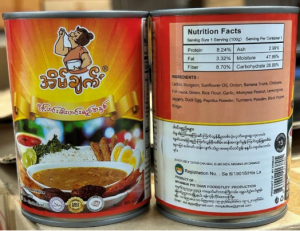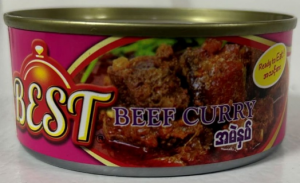ReposiTrak Adds 50 Suppliers to Its Traceability Network
 ReposiTrak, the world’s largest food traceability and regulatory compliance network, leveraging its established inventory management and out-of-stock reduction SaaS platform, is preparing to welcome 50 new dairy and dairy-alternative suppliers into the queue for the ReposiTrak Traceability Network. These new members will efficiently exchange intricate, FDA-required Key Data Elements for each Critical Tracking Event in their supply chains, ensuring proactive compliance well before the January 2026 deadline.
ReposiTrak, the world’s largest food traceability and regulatory compliance network, leveraging its established inventory management and out-of-stock reduction SaaS platform, is preparing to welcome 50 new dairy and dairy-alternative suppliers into the queue for the ReposiTrak Traceability Network. These new members will efficiently exchange intricate, FDA-required Key Data Elements for each Critical Tracking Event in their supply chains, ensuring proactive compliance well before the January 2026 deadline.
Among the 50 new suppliers are 3 standout members with a rich history. One is a Wisconsin-based, family-owned cheesemaker founded more than a century ago, now recognized as one of the nation’s top premium cheese and whey products makers. Another is a U.S.-based cooperative founded in 1938, consisting of 600 farm families and 7,000 associates. With award-winning milk, cheese, and other dairy products, it serves 30% of the U.S. market while emphasizing sustainable dairy practices. The third is a Swedish pioneer in plant-based alternatives, with its oat-based products available internationally.
“ReposiTrak’s network, the largest operational traceability network, is helping dairy and plant-based suppliers achieve seamless compliance with FDA regulations and retailer traceability requirements,” said Randy Fields, chairman and CEO of ReposiTrak. “By joining the network, these suppliers can efficiently share traceability data with an unlimited number of in-network customers, all without the need for additional hardware or software.”
The ReposiTrak Traceability Network requires no additional hardware or software and the ReposiTrak team assists in making the connections needed under the new regulation. Suppliers can connect to an unlimited number of trading partners and share data for a low, flat fee.
ReposiTrak provides retailers, suppliers, food manufacturers and wholesalers with a robust solution suite to help reduce risk and remain in compliance with regulatory requirements, enhance operational controls and increase sales with unrivaled brand protection. Consisting of three product families – food traceability, compliance and risk management and supply chain solutions – ReposiTrak’s integrated, cloud-based applications are supported by an unparalleled team of experts. For more information, please visit https://repositrak.com
For more news of interest to the food and beverage industry, subscribe to Gourmet News.
FSIS Issues Alert for Beef Tallow Products From Mexico
The U.S. Department of Agriculture’s Food Safety and Inspection Service is issuing a public health alert for beef tallow products that were illegally imported from Mexico and are ineligible for entry into the United States. The products were not certified for export to the U.S. by the government of Mexico as being produced under equivalent inspection, they do not identify a certified establishment number on their packaging, and they were not presented to FSIS for import reinspection as required. These factors make the products ineligible to import into the U.S. and unfit for human consumption. FSIS is continuing to investigate how these products entered the country.
The following products are subject to the public health alert, regardless of the product date.
- 1-kg or 500-g bag packages containing “INCA GRASA COMESTIBLE DE SEBO BOVINO” (edible fat from beef tallow).
The products subject to the public health alert do not bear an establishment number nor a USDA mark of inspection. These items were shipped to distribution and retail locations in Arizona.
The problem was discovered when FSIS was performing surveillance activities at a retailer and found beef tallow products from an unverified supplier in Mexico and, therefore, ineligible for import into the United States.
There have been no confirmed reports of adverse reactions due to consumption of these products. Anyone concerned about an illness should contact a healthcare provider.
FSIS is concerned that some product may be in consumers’ pantries or on retailers’ shelves. Retailers who have purchased the products are urged not to sell them. Consumers who have purchased these products are urged not to consume them. These products should be thrown away or returned to the place of purchase.
Consumers and members of the media with questions about the public health alert can contact Jose Gallardo, Owner, MEXDIS, LLC, at 520-455-7239 or mexdisllc20@gmail.com.
Consumers with food safety questions can call the toll-free USDA Meat and Poultry Hotline at 888-MPHotline (888-674-6854) or send a question via email to MPHotline@usda.gov. For consumers that need to report a problem with a meat, poultry, or egg product, the online Electronic Consumer Complaint Monitoring System can be accessed 24 hours a day at https://foodcomplaint.fsis.usda.gov/eCCF/.
For more news of interest to the food and beverage industry, please subscribe to Gourmet News.
USDA Issues Warning of Illegally Imported Myanmar Products

 The U.S. Department of Agriculture’s Food Safety and Inspection Service is issuing a public health alert for various meat and poultry products that were illegally imported from the Republic of the Union of Myanmar. FSIS is continuing to investigate how these products entered the country.
The U.S. Department of Agriculture’s Food Safety and Inspection Service is issuing a public health alert for various meat and poultry products that were illegally imported from the Republic of the Union of Myanmar. FSIS is continuing to investigate how these products entered the country.
The following products are subject to the public health alert, regardless of the product date. View labels in Burmese.
- 180-g. cans containing “BEST BEEF CURRY.”
- 425-g. cans containing “BEST Chicken Biryani.”
- 360-g. cans containing “Hti Mi Gwik Dry MoHinGa Paste.”
- 425-g. cans containing “BEST Myanmar Duck Blood.”
- 400-g. cans containing “Eain Chak MoHinGa Paste.”
- 160-g. vacuum sealed clear packages containing “Min Thar Gyi Dried Fish.”
- 400-g. cans containing “Eain Chak Coconut Soup Paste.”
The products subject to the public health alert do not bear an establishment number nor a USDA mark of inspection. These items were shipped to retail locations in Arizona, California, Iowa, Kansas, Maryland, Minnesota, Nebraska, Oklahoma and Texas.
The problem was discovered when FSIS was performing surveillance activities at a retailer and found meat and poultry products from Myanmar that are not eligible to be exported to the United States.
There have been no confirmed reports of adverse reactions due to consumption of these products. Anyone concerned about an illness should contact a health care provider.
FSIS is concerned that some product may be in consumers’ pantries and on retailers’ shelves. Retailers who have purchased the products are urged not to sell them. Consumers who have purchased these products are urged not to consume them. These products should be thrown away or returned to the place of purchase.
Media and consumers with questions regarding the public health alert can contact Leo Chen, Managing Member, at 480-399-6811 or Leo251185@gmail.com.
Consumers with food safety questions can call the toll-free USDA Meat and Poultry Hotline at 888-MPHotline (888-674-6854) or send a question via email to MPHotline@usda.gov. For consumers that need to report a problem with a meat, poultry, or egg product, the online Electronic Consumer Complaint Monitoring System can be accessed 24 hours a day at https://foodcomplaint.fsis.usda.gov/eCCF/.
For more news of interest to the food and beverage industry, subscribe to Gourmet News.








